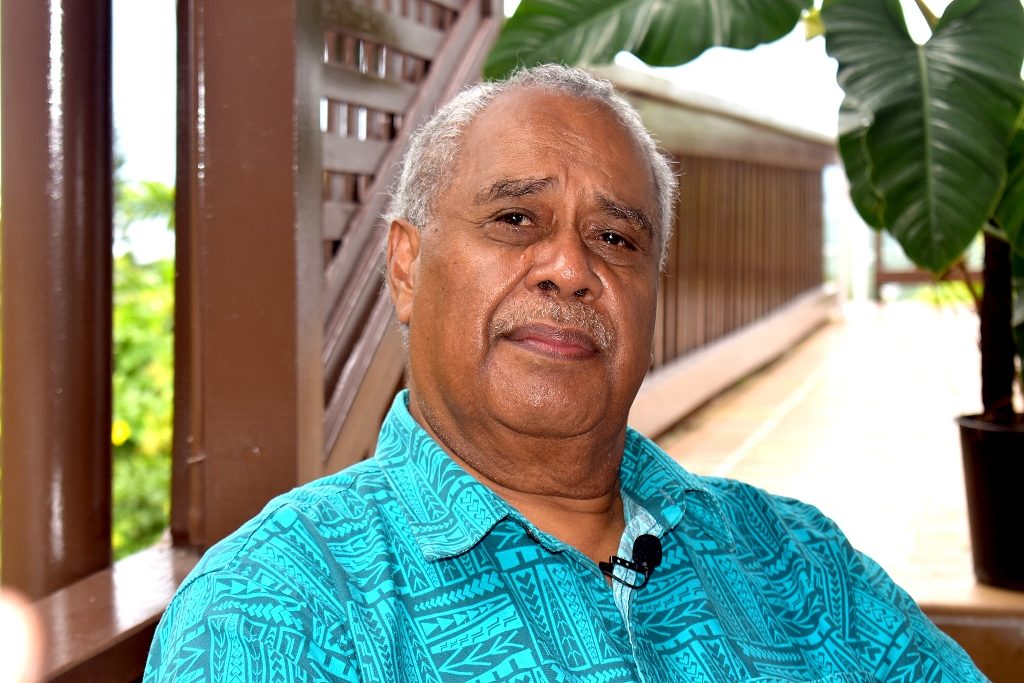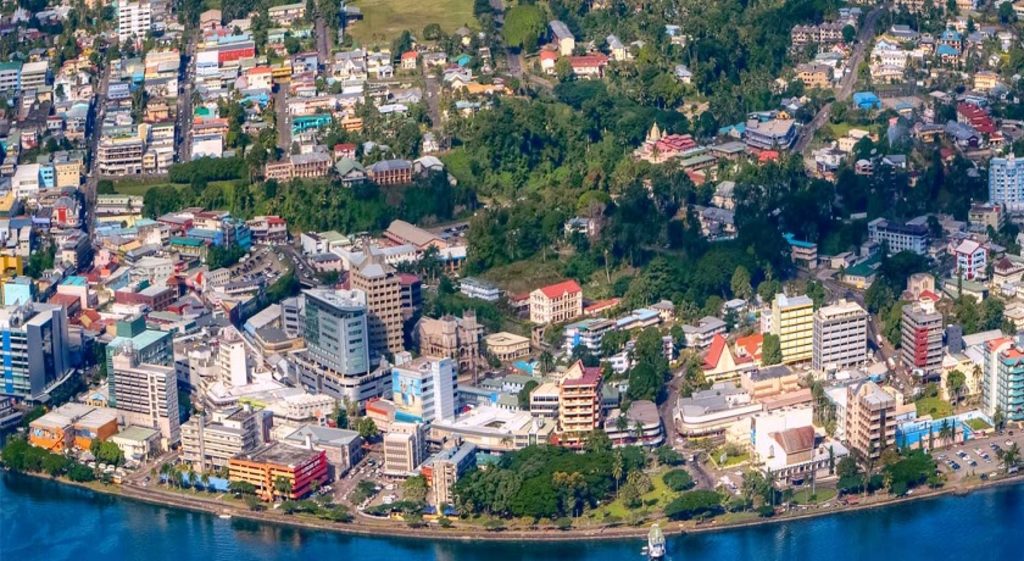THIS opinion is in response to the many requests for my views on the 2025/2026 budget announced by the Minister for Finance last Friday.
I had prepared six national budgets as the former Permanent Secretary for Finance and nearly 10 years of experience as the Governor of the Reserve Bank of Fiji.
There are multiple ways of analysing a national budget. Many of us focus on the allocation of money. While this approach is important, focusing only on the allocations masks the policies and strategies of the Government for the future of the country.
I normally focus my analysis of the national budget on the long-term sustainability of strategies and policies. This forward-looking approach is important because the nation must be concerned about the sustainability of our fiscal position and raising our growth potential.
Budget overview
My overview of the national budget is:
a) There are welcomed short-term relief in the decrease in VAT, pay rise for civil servants, increase in education allowances, and higher welfare payments amongst others.
b) My major concern is on what I believe are serious inconsistency in the revenue projections due to rising global uncertainty.
c) I am disappointed in the lack of reduction in wastages, something that I have been preaching for a long time.
d) The budget is weak on sustainability and fiscal responsibility. It is the Fiji First strategy all over again!
e) There is no mention of reducing corruption when it is rising and must be stopped now.
f) There is no mention of the increasing poverty, jobs and the widening gap between the rich and the poor.
Spending spree
This is a high spending budget. The increases in salaries, allowance and others increase spending on consumption of which 80 per cent are drained out in imports. These types of payments will not be saved but quickly spent by the recipients. They ultimately end up in the pockets of businesses. These measures while welcome are short term in nature and therefore not sustainable.
It is very obvious to me that the expenditure drives this budget. A fiscal strategy with the budget operating expenditure driving economic growth is dangerous for Fiji because of our very small productive capacity.
This was the strategy of the Fiji First government that got us into this mess in the first place. We are going down the same direction. We had hoped that this Government would be different.
There is little incentive in the budget to stimulate investment, production and productivity. Therefore, the impact of this budget will be short lived. In the long term, the rich get richer, and the poor gets left behind further.
Deficit heading in the wrong direction
Financial sustainability can only be measured with a medium-term view. The main indicator of sustainability is the debt position.
The national debt is still a long way from where it should be as a percentage of GDP. Debt is rising to 80 per cent of GDP in this budget when we should be at 40 per cent. Therefore, the deficit is heading in the wrong direction. More precariously, the deficit is based on an over optimistic revenue forecast.
Of even of more concern is how the deficit has been derived. The Minister for Finance talked about improving budget efficiency. But they were only words. The efficiency of government spending continues to decline because there is no measure to reduce wastages or introduce reforms in this budget.
Moreover, the rise in spending is mostly on operating expenses. The combination of lower efficiency and rising deficit is not sustainable. I would have preferred the deficit to be at 4 per cent of GDP which could have been achieved by the reduction in wastages and budget reforms. My call for a reduction in the number of Ministers, overseas travel and vehicles has been ignored.
The urgent need for reforms
Government is bumping along as the previous government had done. It is vital that we introduce budget reforms to raise the productivity of the public sector. Sadly, people are being pushed from pillar to post by this Government in their search for answers to their problems.
I have heard people say that at least with the Fiji First government they were served promptly. I urgently call for reforms to lift government productivity and quicken the delivery of service to the people.
In addition, the State-Owned Enterprises (SOEs) are allocated about $700million each year. We must therefore reform the SOEs to raise productivity and improve the value for money.
The rise and fall of VAT
VAT is the highest revenue earner for the government. VAT is paid by the final consumers. The Government has finally heard our suggestion to lower VAT.
But it is interesting to trace the history of VAT.
The Government followed the recommendation of the Fiscal Review Committee and increased VAT to 15 per cent in its first year. The Government has now see fit to reduce VAT to 12.5 per cent. This up and down strategy begs the following questions:
a) Why did government raise VAT in the first place? Remember, they said that government needed the revenue to pay for the higher demand by the people for spending. But lo and behold they then used it to pay themselves higher salaries, some increasing by 40 per cent when families are struggling with high cost of living. Whose interest did they serve first?
b) Now they have heard our plea and reduced VAT. Why could they not reduce VAT back to 9 per cent? I have a theory that they are saving the additional decrease for the election budget next year. In the process, they are sacrificing the people’s livelihoods for their political gimmicks.
Revenue collections are optimistic
In budgeting, revenue must drive expenditure. My main criticism of the Fiji First budgets was precisely that they were doing the opposite—they first determine expenditure then look for revenue. It is obvious to me that this is exactly what this budget has done. That is the reason why the revenue projection is too optimistic. Some details are:
a) Direct taxes are rising by 7 per cent when the tax rate of biggest revenue earner, VAT, is reduced by 17 per cent and GDP growth has been revised downward.
b) Indirect taxes are rising by 6 per cent when duties on many products have been reduced.
c) There is a big increase in fees by 14 per cent. Where is this coming from?
d) There is a big increase in departure taxes based on record tourist arrivals of over 1 million when global uncertainty is rising and the global trade war is still a possibility.
The optimistic revenue projection is the biggest risk that I see in this budget when the deficit is already at 6 per cent of GDP. There would be a fiscal crisis if revenue does not perform as projected. Again, this was Fiji First strategy all over.
Warning lights
I expect the Government to praise itself in its budget. But I think that have gone too far in the flowery language of the budget speech. The problem with flowery language is that words do not match actions. I would have been more careful in matching the speech with the actions in the budget.
I would be flashing warning lights now because of the following:
a) The absence of reforms to lift efficiency and productivity.
b) The future of the sugar industry remains unclear while the Government continue to pour a great deal of taxpayers’ money into the industry.
c) Populism in financing is dangerous especially for a small open economy like Fiji.
d) We must stop the political gimmicks at the expense of the taxpayers.
e) The lack of focus on rising corruption when it is the biggest threat facing the nation.
Fiji needs brave leaders who have the courage to build a robust foundation for our future generation.
Playing populism in financing is dangerous. While it will get the accolades and praises now for those who benefit from it, it defers the pain to our children.
That is not fair. It is not responsible.
n SAVENACA NARUBE is the leader of Unity Fiji party and former Governor of the Reserve Bank of Fiji. His views on the 2025/2026 National Budget are his and do not reflect the views of this newspaper.
Unity Fiji party leader Savenaca Narube during a past interview with The Fiji Times in Suva. Picture: FT FILE/SOPHIE RALULU



